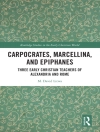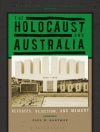Engendering whiteness represents a comparative analysis of the complex interweaving of race, gender, social class and sexuality in defining the contours of white women’s lives in Barbados and North Carolina during the era of slavery. Despite their gendered subordination, their social location within the dominant white group afforded all white women a range of privileges. Hence, their whiteness, as much as their gender, shaped these women’s social identities and material realities. Crucially, as the biological reproducers of whiteness, and hence the symbolic and literal embodiment and bearers of the state of freedom, they were critical to the maintenance and reproduction of the cultural boundaries of ‘whiteness’, and consequently the subjects of patriarchal measures to limit and control their social and sexual freedoms.
Engendering whiteness draws on a wide variety of sources including property deeds, wills, court transcripts, and interrogates the ways in which white women could be simultaneously socially positioned within plantation societies as both agents and as victims. It also reveals the strategies deployed by elite and poor white women in these societies to resist their gendered subordination, to challenge the ideological and social constraints that sought to restrict their lives to the private domestic sphere, to protect the limited rights afforded to them, to secure independent livelihoods, and to create meaningful existences.
A fascinating study that with be welcomed by historians of imperialism as well as scholars of gender history and women’s studies.
表中的内容
Acknowledgements
List of abbreviations
Introduction
1.Mapping racial boundaries: Gender, race and poor relief in Barbados
2. ‘Worse than [white] men, much worse than the negroes…’: Sexuality, labour and poor white women in North Carolina
3. To serve her own desires’: White Barbadian women and property holding
4. ‘There may be my sphere of usefulness…’: The making of a North Carolinian plantation mistress
5. White Lives, Black Bodies: Barbadian women and slaveholding
6.‘She Would Labor Almost Night and Day’: White women, property rights and slave-holding in North Carolina
Conclusions
Bibliography
Index
关于作者
Cecily Jones is Senior Lecturer in Gender and Development Studies at the University of the West Indies in Jamaica












